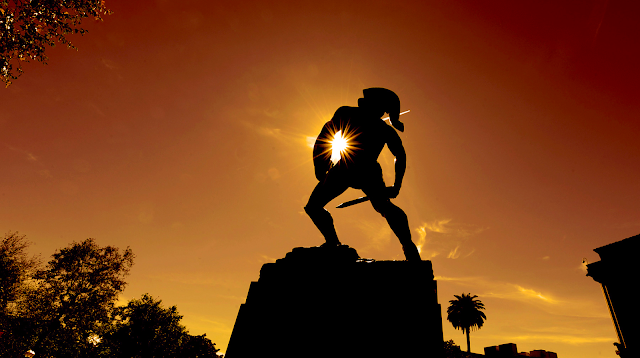"Who owns the patent on this vaccine?"
"Well, the people, I would say. There is no patent. Could you patent the Sun?"
- Dr. Jonas Salk, inventor of the polio vaccine
_______________________________________________________________
With Pfizer and Moderna's COVID-19 vaccine finally on the way, what better occasion than now to explore how long-duration spaceflights have contributed to the field of immunology! As the son of a doctor and a former healthcare-sector investment banker, space medicine is one of my favorite topics to write about, especially since much of the research conducted on the ISS is related to human physiology. Besides the obvious risk of launching on a rocket going 20x faster than the speed of sound, astronauts must contend with the far more nebulous detriments that microgravity wreaks upon the human body: bone loss, muscle degeneration, visual impairment, radiation exposure, etc. Unsurprisingly, the immune system suffers as well; astronauts' immunity becomes suppressed during long stays off-planet, putting them at risk of illness that can derail a mission
 |
| Poor guy - Apollo 7 Commander Wally Schirra looks like he's about to sneeze right this instant! |
Getting sick in space is not unprecedented. The crew of Apollo 7 all infamously caught colds almost immediately after reaching orbit, leading to horrible sinus congestion that couldn't drain without gravity and increasingly irritable moods towards Mission Control. In fact, their nasal discomfort was so intolerable that the crew adamantly refused to wear their helmets during reentry! But only more recently have observations on the ISS dug deeper into how microgravity dampens the immune system. Two studies published in the Journal of Interferon & Cytokine Research analyzed blood plasma taken by various ISS crew members to measure concentrations of various cytokines, proteins that stimulate immune responses and signal other cells towards sites of inflammation or infection. What researchers found was astronauts' immune systems were often "confused" - cytokine activity sometimes caused overreactions (possibly the culprit behind increased allergies reported by some astronauts), but at other times was depressed, leaving the astronauts susceptible to infection. And they concluded that the stresses of spaceflight, such as radiation, isolation, altered sleep schedules, all likely contributed to the immune imbalance
 |
| Cytokines can be characterized many ways, but a simple classification is by method of transmission: autocrine, paracrine, and endocrine |
But if astronauts quarantine before flight, and if the ISS is presumably a sterile environment, how do astronauts get sick in the first place? Stowaway germs not withstanding, hidden viruses lurk within all our bodies, even though we aren't constantly sick because our immune systems keep them in check. However, studies have shown that these dormant viruses sometimes reactivated once in microgravity, capitalizing on the astronauts' weakened immune systems. The astronauts took repeated samples of their saliva, blood, and urine, and researchers found increased secretion of cortisol and adrenaline, stress hormones known to affect the immune system. And while most of the astronauts were asymptomatic (only 6 reported any symptoms at all), this "viral shedding" was still readily observable, as four of the eight known human herpes viruses were detected in their bodies. Knowing that viral resurgence will pose a much greater risk on long-duration spaceflights to the Moon and Mars, NASA has begun testing rapid viral detection systems and immune boosters to be used both by astronauts on future deep space missions, as well as immunocompromised patients here on Earth
 |
| Astronauts Alexander Gerst (Germany) and Serena Auñón-Chancellor (USA) performing a blood draw on the Human Research Facility of the ISS |
Of course, the best preventative measure against disease is a vaccine, and although the ISS wasn't directly involved in the development of the COVID-19 vaccine, over the past two decades much research has been devoted to the behavior of both microbes and human immune cells in weightlessness to create more effective vaccines. Salmonella and MRSA bacteria samples were selected as the pathfinder trials, both of which are common pathogens that have shown increased resistance to antibiotics. Scientists observed various behaviors in the samples directly related to virulence, such as increased growth rates, antibiotic resistance, and genetic alterations. One hypothesis is that in the absence of gravity, the bacterial cells are deprived of normal forces like buoyancy and sedimentation that help drive nutrient absorption and waste excretion, forcing genetic expressions that ultimately make the pathogens hardier and more virulent. By pinpointing factors that contribute to pathogenic proliferation, scientists can design vaccines that allow the immune system to better inhibit infection
 |
| Astronaut Sandra Magnus handling a salmonella experiment on STS-135, the final Space Shuttle mission |
Personally I can't wait to get the COVID vaccine, though as the only member of my family not in the healthcare field, I'm not on any kind of priority list so it'll be a while. But when I do, it'll be cool to know that research on the ISS play a small part in our advancements in immunology



No comments